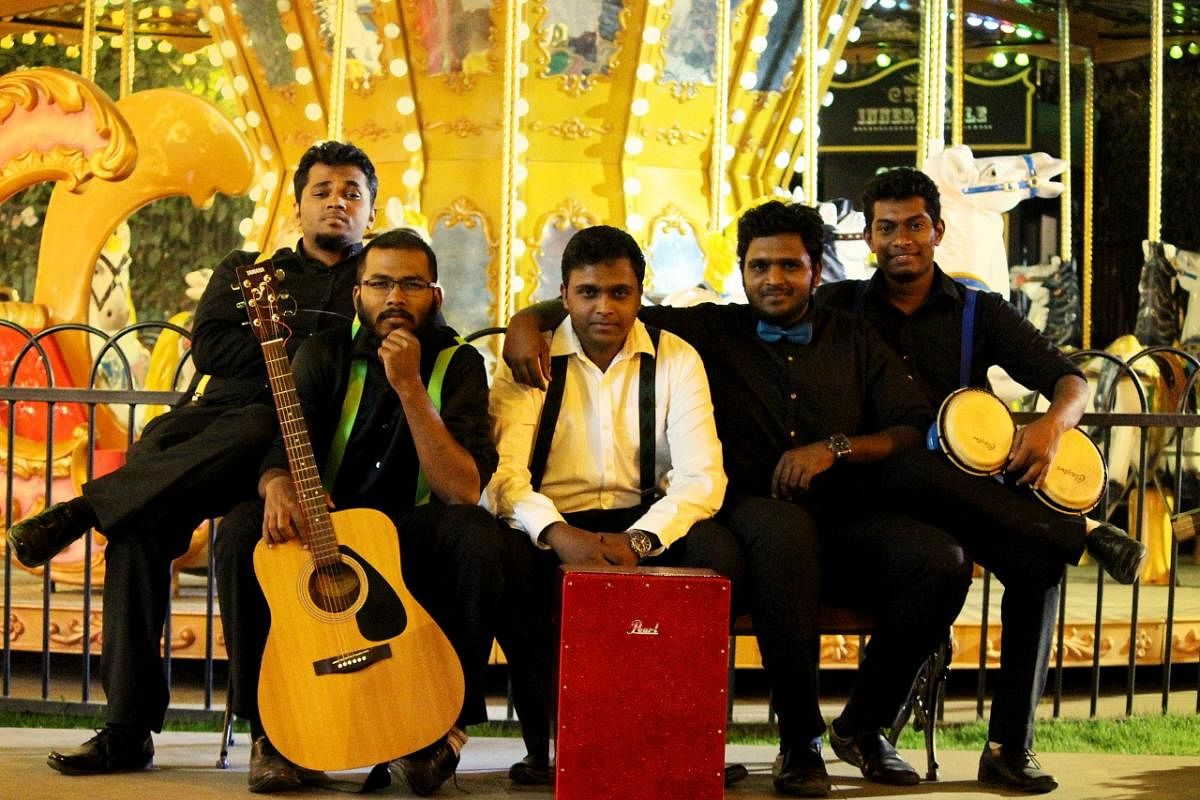
By mid-March, most music festivals and live concerts had been cancelled or postponed owing to the coronavirus. To some, this may seem like a small price to pay for the sake of health, but for many artistes, this has been a time of struggle.
Unlike musicians from the film industry or those with record label backing, indie musicians rely on live performances, not just for income, but to reach out to a larger audience. The lack of events means losing out on earnings for the foreseeable future.
Metrolife spoke to a few indie musicians to find out how they have been coping.
‘Covid blues’
Musicians across the city agree that the lack of gigs has been a huge hit, but this has not stopped them from doing what they love. Peter Alvin of ‘TAP- The Acoustic Project’ says that most full-time artistes have been finding alternatives, but it has been a challenging journey. “The pandemic has given the band time to concentrate and work on music individually. We have been upskilling ourselves for when we finally get back on the stage,” he adds.
Debjeet Basu, lead guitarist and vocalist for the rock band ‘Perfect Strangers’ says his band has been busy. Last week, they launched the Perfect Strangers School of Music. The online school caters to both beginners and musicians hoping to better their skill.
While the band has been working on their music, their fans will not be getting a new album soon. Live gigs and tours, he says, are important to these bands. Without record labels or other back-up mechanisms, it would become impossible for them to reach a large audience.
Online gigs, however, are more lucrative than physical events. Co-founder of Streamphony, a platform that streams ticketed online gigs, Debjeet says that such events transcend geographical limitations and help reach a wider audience. This is not only true for bands with a strong fan following. “We have seen bands that would have sold 45 to 50 tickets for a live show now selling over 100 tickets,” he says.
‘Branching out’
Vishnu Ravindran Nair, composer and vocalist, has been focusing on recording his songs and releasing them online since 2018. Streaming revenue, however, is not enough for upcoming musicians. “If you get sales abroad, then it can be lucrative. My album costs Rs 80 in India, while I get $6 in the US. But for those just starting out, selling copies there can be challenging,” he says.
For those with a smaller audience, branching out is a smart thing to do, he suggests. Vishnu conducts guitar classes and lends his studio to other artistes to master tracks.The shift online has also fetched him a few students.
‘Online shows here to stay’
music school. Debjeet Basu says that the group decided
to go online and not let the Covid blues get to them.
Prior to the lockdown, many venues such as ‘B flat’ and ‘Humming Tree’ were forced to shut down. This had left many musicians in a lurch.
Live streaming allows musicians to perform without having to struggle to get a spot at the handful of venues that managed to survive.
While online shows are never a complete substitute for physical ones, it provides opportunities and possibilities, says Jonathan Reuben, guitarist at ‘Clown with a Frown’. “Artistes need to rethink how content is distributed and consumed. They can explore reaching out to audiences they wouldn’t have had otherwise,” he says.
He adds that this could allow room for collaborations: “Working together and pooling in resources could help keep the circuit afloat. Maximise revenue by selling music and merchandise.”
Forming an association and pushing for funds from the government are steps that can be considered in the long run.
Even as they seek larger audiences, the musicians do not believe that performing for free is the solution. “Free shows may get you a few extra followers, but it will kill the market,” says Debjeet.